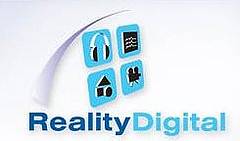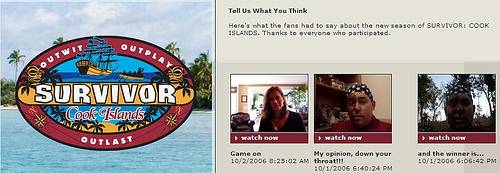Reality Digital is an online video and social
networking platform for business websites, for example those with a media and
entertainment focus. Crudely put, Reality Digital enables businesses to set up their own
branded YouTube. They view their competition as being the likes of VideoEgg, VidaVee,
BlipTV – which are all video publishing platforms with social networking aspects. Plus of
course they’re kind of competing with YouTube itself, as increasingly businesses are
distributing marketing campaigns and messages via YouTube.

I spoke to Reality Digital CEO Cynthia Francis to find out more about their product.
But first a look at the features…
Reality Digital is a video production and sharing platform, designed for businesses –
an example is the website for the popular CBS tv show Survivor, which uses the
Reality Digital platform. Also part of the product is blogging, forums, an admin
dashboard and an advertising portion called Opus AdCel (which they are patenting). Blogs
and forums have only just been added to the product. Their business model is being an ASP
(application service provider), so Reality Digital hosts everything for their
customers.

CEO Cynthia Francis told me that as well as media and entertainment businesses,
they’re also targeting travel, retail and communities of shared interest (musicians,
political junkies, foodies, dog lovers, hikers, etc).
In terms of the user experience, end-users can watch the videos on the usual video
players (Quicktime, Real, Windows Media). An example I checked out is AddictingClips, which is a product of Atom
Entertainment (acquired in August
this year by Viacom/MTV). It has the same features you’ll find on any other video
sharing site, so there’s nothing spectacular to report in terms of features. The
AddictingClips website is also a fairly plain design and I didn’t find the video viewing
experience very compelling, but what it does do is fit into the Atom Entertainment brand – and so it probably meets their users’ expectations.

I can certainly see the appeal of a
YouTube-like platform for businesses who want to get a social community going, based
around their own products or brand. One differentiating feature of a product like Reality Digital, compared to a YouTube,
is that the business using the platform can optionally control what “user generated
content” ends up on the site – via their admin dashboard, where they can review content
and comments etc before they go live. You won’t find that kind of control happening on a consumer
product like YouTube – where user freedom prevails. But with a business brand, which is
serving up ads against the content and so wants to monitor quality, it could be a
defining feature.

















